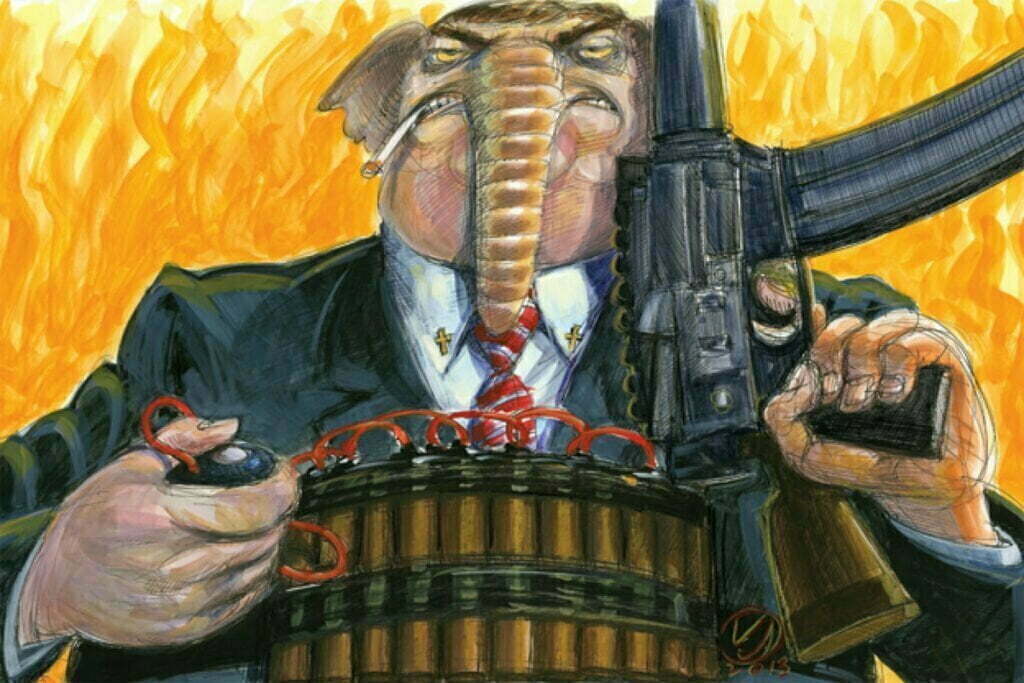One of the secondary narratives that circulate around the leftwing media sphere is that the Republican Party does not have a Platform. It is just about power – not issues.
It is true that the Republican National Convention in 2020 took a pass on producing the traditional “Platform” at the National Convention. I have mixed feelings about that. For many years, I have written of the meaninglessness of the national platforms. They are often put together by the most ardent – and often one-issue – activists.
At the conventions, there is heated debate on the planks – and a lot of reporting about the process and the results. However … that is about the last time anyone pays attention to THE Platform. The policies of a political party in America are set by those we nominate and elect. Presidents routinely ignore or even reject portions of the Platform with which they do not agree. The issues arise from people – not paper.
Still, I do believe there is some value in issuing a Platform at the national conventions. Flawed or meaningless as it may be in implementing real policy, it still serves to bring issues to public attention. It still lets those running for office know what the people – at least the party members – are thinking. But as a foundation for actual policy implementation – zippo.
Just ask yourself how many times have you heard politicians, pundits or the press referring to the platforms of the political parties – or specific planks? Me neither. And I follow this stuff as a profession.
Still, I think the Republican Party made a mistake in not issuing the traditional Platform. If nothing else, it would have avoided the cheap-shot criticisms from the Democrats who did produce a Platform – and immediately ignored it.
The larger issue, however, is the claims by Democrats that the GOP does not have a platform-of-beliefs. Their accusations are another political narrative based on a lie.
For the better part of five years, I have consistently explained my disdain for the Trump personality and my appreciation of the conservative issues he pursued in office – with some notable exceptions, of course.
We conservatives believe in stemming the growth of the federal government – lower taxes and fewer regulations. We believe in the rule-of LAW and the courts-of-LAW as opposed to the vigilante-style court-of-public-opinion. We believe in fundamental and honest education – as opposed to political indoctrination. We support choice in education. We believe in LEGAL immigration and secure borders. We believe in funding police to do their jobs to “serve and protect.” We believe that the developing human in the womb has a constitutional and moral right to life – with extreme exceptions. We believe in a free-market economic system. We believe in honest and secure elections in which every American has a reasonable ability to cast a ballot if they wish to do so. We believe in the right of good folks to own guns – and the need to take them away from the bad actors. We believe in a strong defense. We believe in American exceptionalism. We believe in e pluribus unum as opposed to the divisive evil of identity politics and political correctness.
I could go on and on — and we could fairly debate the subtext of these “planks” in the conservative Republican Platform – but you get the point. Both Democrats and Republicans – progressives and conservatives – have their juxtaposed beliefs. To say that one side does not have a platform of issues and policy proposals is a political lie. The difference in the policies between the parties is one side believes in the power of centralized government and the other side (the good folks, I might add) believe in freedom of the individual. It is the difference from ruling from the top down and governing from the bottom up.
So. There ‘tis.
